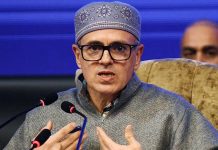
Edited Excerpts from an interview
What led you to write an autobiography?
I started to write when I was in custody for nine days in Tihar jail. Initially, I was recording a daily diary of the derailed and unjust investigation process of the Jessica Lal case. There were several attempts to silence me as a witness. I was accused of destruction of evidence in the Jessica Lal murder case and arrested after a Delhi court issued a non-bailable arrest warrant against me in a cheating and forgery case. It has been a life-threatening and transforming experience. The book was the catharsis I needed.
You have been an entrepreneur, a designer and a columnist. It seems as if the events of one single night changed everything. Is that how you see it?
It was a shattering blow. It was so unreal; seemed like a nightmare that would vanish the next day, but stretched on for seven years. I don’t wish it upon anyone.
You’ve written about your association with Shammi Kapoor and Raj Kapoor’s disapproval of the match. Looking back, how important was this phase of your life?
First of all, I discovered the meaning of desire, love and romance, in spades. In that generation, group love was the common denominator. Most friends were in love with someone or the other. Looking back, I feel like I was a fish in the same river. But I had to keep my romance tightly boxed in. It came with a lot of pressure; handling that was difficult.
Your book echoes the yearning for freedom as a teenager and the courage to tread unconventional paths. What made you challenge social codes?
The challenge was a natural force emanating from repeated rejections of my wishes at home. Without realising this, I had started to embrace the idea of challenge as my basic character. I tended to attract it everywhere and even thrived on it. Taking on the challenge of converting Hauz Khas village into an urban oasis of arts, fashion and dining was one such. This is who I am now. I challenge injustice in all its forms.
Where did the resilience to endure the loss of your parents to cancer stem from?
I suppose the courage and the resilience has arisen from standing up to challenges and believing in what is right.

Tree: My Story
Bina Ramani
Rupa, 310 pp; Rs 500
You’ve written about not having reacted sharply enough when you were being accused of aiding Manu Sharma and not co-operating with the police. What stopped you from justifying your stance?
What stopped me was a gag order issued by the police in court. Besides, the media had its guns trained on me. Bashing a fallen Bina sold a lot more than putting out a correct version that lacked sensation. Bad news sells much faster than good news, doesn’t it?
You have been sharply critical of the role media played in the aftermath of the Jessica Lal trial. Yet, it was a TEHELKA investigation that brought out the truth. Do you think media can ensure justice?
It is not a guarantee that the media can ensure justice but it can certainly carve the path to it. Conversely, it can derail justice when it becomes over-zealous about its point of view. The media in India is extremely powerful and can wield a lot of influence — it should, therefore, be thorough in its investigations.
You have written that Rajkumar Gupta’s movie No One Killed Jessica “painted the Ramanis, especially me, in a very damaging light”. Why do you think there has been an attempt to question your credibility as a witness?
I was the last witness standing. I made it too inconvenient for them to get a powerful man’s son freedom from jail.
Do you think you paid a heavy price for being a known figure in the Delhi power corridors?
Yes. If I had been a nobody, the Jessica Lal case would have evaporated within a week or two, until the next headline.
What gave you the strength to overcome the tumultuous decade after Jessica Lal’s murder?
My family, few close friends and my inner resolve. As human beings, we have an in-built reservoir of strength. Some of us get the opportunity to tap it when a crisis strikes. Maintaining one’s own integrity is the key.
aishwarya@tehelka.com












